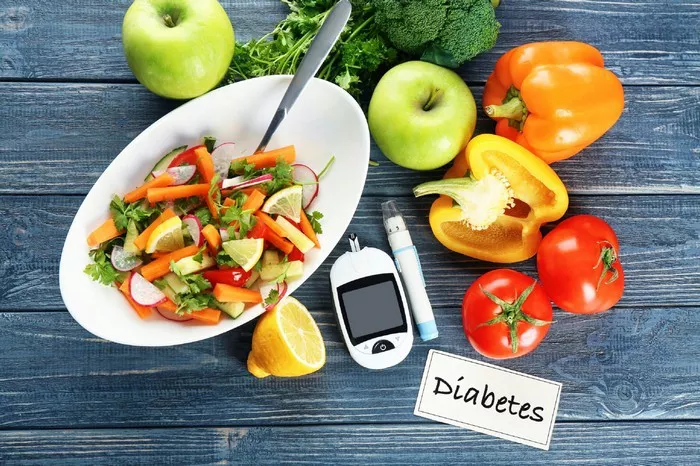Gestational diabetes mellitus (GDM) is a type of diabetes that develops during pregnancy, typically in the second or third trimester. It is characterized by high blood glucose levels and can pose significant risks to both the mother and the baby if not properly managed. One of the key aspects of managing GDM is understanding what to avoid in terms of diet, lifestyle, and medication. This article will provide a comprehensive guide on the various aspects to avoid during gestational diabetes to ensure a healthy pregnancy and reduce potential complications.
Dietary Considerations
Diet plays a crucial role in managing gestational diabetes. Making the right dietary choices can help keep blood glucose levels within a healthy range. Here are some dietary components to avoid:
1. High-Glycemic Index Foods
Foods with a high glycemic index (GI) cause a rapid spike in blood sugar levels. For women with gestational diabetes, it is essential to avoid high-GI foods to maintain stable blood glucose levels. These include:
- White Bread and Rice: These are quickly broken down into glucose, causing a rapid rise in blood sugar.
- Sugary Breakfast Cereals: Many cereals are loaded with sugar and have a high GI.
- Pastries and Baked Goods: Items such as cakes, cookies, and pastries often contain refined flour and added sugars.
- Processed Snacks: Chips, crackers, and other processed snacks can have high GI values and are often high in unhealthy fats.
2. Sugary Beverages
Sugary drinks are one of the quickest ways to elevate blood sugar levels. Pregnant women with GDM should avoid:
- Sodas: Regular sodas contain high amounts of sugar.
- Fruit Juices: Even though they are derived from fruits, many fruit juices have added sugars and can cause a spike in blood glucose.
- Energy Drinks: These drinks often contain a lot of sugar and caffeine.
3. Sweets and Desserts
Desserts and sweets are typically high in sugar and fat, contributing to poor blood glucose control. Some common examples to avoid include:
- Candy and Chocolate: These are high in sugar and calories.
- Ice Cream and Frozen Desserts: Often contain both sugar and unhealthy fats.
- Donuts and Sweet Breads: High in sugar and refined carbohydrates.
4. Refined Carbohydrates
Refined carbohydrates are stripped of fiber and nutrients, leading to rapid digestion and spikes in blood sugar. Foods to avoid include:
- White Pasta: Opt for whole-grain versions instead.
- White Flour Products: Such as white bread and many types of baked goods.
- Instant Noodles: These are not only high in refined carbs but also often contain unhealthy additives.
Lifestyle Modifications
Apart from dietary adjustments, certain lifestyle modifications are essential for managing gestational diabetes effectively.
1. Sedentary Lifestyle
A sedentary lifestyle can lead to poor glucose control and increased insulin resistance. Physical activity helps in utilizing glucose more efficiently. Women with GDM should avoid:
- Prolonged Sitting: Sitting for long periods can worsen blood sugar control. It’s important to take breaks and move around periodically.
- Lack of Exercise: Regular, moderate exercise is beneficial. Activities such as walking, swimming, or prenatal yoga can help maintain healthy glucose levels.
2. Stress and Lack of Sleep
Stress and lack of sleep can have a negative impact on blood sugar control. It’s essential to avoid:
- High-Stress Environments: Chronic stress can lead to elevated cortisol levels, which can increase blood glucose.
- Poor Sleep Hygiene: Not getting enough sleep or having poor-quality sleep can affect insulin sensitivity. Aim for 7-9 hours of quality sleep each night.
Medication and Supplementation
Medications and supplements play a role in the management of GDM, and it is crucial to understand what should be avoided.
Unprescribed Medications
Taking medications that are not prescribed by a healthcare provider can be harmful. Pregnant women with GDM should avoid:
- Over-the-Counter Medications: Some OTC medications can affect blood sugar levels or may not be safe during pregnancy.
- Herbal Supplements: Many herbal supplements have not been studied for safety in pregnancy and can have unknown effects on blood glucose.
Certain Prescription Medications
Some prescription medications might not be safe for use during pregnancy or could impact blood sugar levels. Always consult with a healthcare provider before continuing or starting any new medication. Avoid:
- Certain Diuretics: These can affect electrolyte balance and blood glucose levels.
- Beta-Blockers: Used for high blood pressure, they can sometimes mask symptoms of low blood sugar.
General Health and Wellness
Maintaining overall health and wellness is vital for managing gestational diabetes. Here are some general health aspects to consider:
Smoking
Smoking is detrimental to both maternal and fetal health. It can increase the risk of complications in pregnancy, such as preeclampsia and preterm birth, and should be strictly avoided.
Alcohol Consumption
Alcohol can have unpredictable effects on blood sugar and is generally advised against during pregnancy. It can also increase the risk of congenital disabilities and other complications.
Excessive Weight Gain
While some weight gain is normal and healthy during pregnancy, excessive weight gain can worsen insulin resistance and complicate the management of GDM. Avoid:
- Overeating: Focus on balanced meals with appropriate portion sizes.
- High-Calorie, Low-Nutrient Foods: These contribute to unnecessary weight gain without providing essential nutrients.
Monitoring and Medical Follow-Up
Regular monitoring and follow-up with healthcare providers are critical components of managing gestational diabetes.
Skipping Appointments
Regular check-ups allow healthcare providers to monitor blood glucose levels, adjust treatment plans, and ensure both mother and baby are healthy. Avoid:
- Missing Prenatal Appointments: These visits are essential for monitoring the progress of the pregnancy and the health of the baby.
- Skipping Blood Sugar Monitoring: Regular monitoring helps in keeping track of blood glucose levels and adjusting diet or medication as needed.
Ignoring Symptoms
Gestational diabetes can sometimes present with symptoms that require immediate attention. Do not ignore:
- Excessive Thirst and Urination: These can be signs of high blood sugar.
- Fatigue: Severe or unexplained fatigue may indicate issues with blood sugar control.
Emotional and Mental Health
Managing gestational diabetes can be stressful, and it’s important to avoid factors that could negatively impact mental health.
Isolation
Dealing with gestational diabetes can feel overwhelming. Avoid:
- Isolating Yourself: Seek support from family, friends, or support groups.
- Ignoring Mental Health: If feelings of anxiety or depression arise, talk to a healthcare provider. Mental health is a crucial aspect of overall well-being.
Unrealistic Expectations
Setting unrealistic expectations can lead to frustration and stress. Avoid:
- Perfectionism: Understand that managing GDM is a process, and it’s normal to have ups and downs.
- Comparing Yourself to Others: Every pregnancy is unique, and what works for one person may not work for another.
Education and Information
Being informed about gestational diabetes is key to managing it effectively. It is important to avoid misinformation and stay educated.
Relying on Non-Evidence-Based Sources
There is a lot of misinformation available. Avoid:
- Unverified Internet Sources: Ensure the information comes from reputable, evidence-based sources such as healthcare providers or trusted medical websites.
- Anecdotal Advice: While well-meaning, advice from non-professionals may not be appropriate for managing GDM.
Lack of Knowledge about GDM
Understanding the condition helps in making informed decisions. Avoid:
- Not Asking Questions: If there are aspects of GDM that are unclear, ask your healthcare provider for clarification.
- Ignoring Educational Resources: Utilize available resources such as classes, books, and websites dedicated to managing gestational diabetes.
See also:Normal Blood Sugar Levels for Pregnancy
Conclusion
Managing gestational diabetes involves a comprehensive approach that includes dietary management, lifestyle modifications, proper medication use, and regular monitoring. By avoiding high-glycemic foods, sugary beverages, sweets, refined carbohydrates, and other harmful substances, as well as engaging in regular physical activity, managing stress, and following medical advice, women with gestational diabetes can significantly reduce the risk of complications and ensure a healthy pregnancy. It is also crucial to stay informed, seek support, and maintain a positive outlook. With proper management and care, gestational diabetes can be effectively controlled, leading to healthy outcomes for both mother and baby.
Related topics:
6 Steps to Prevent Gestational Diabetes
Chances of Having Gestational Diabetes Again

























